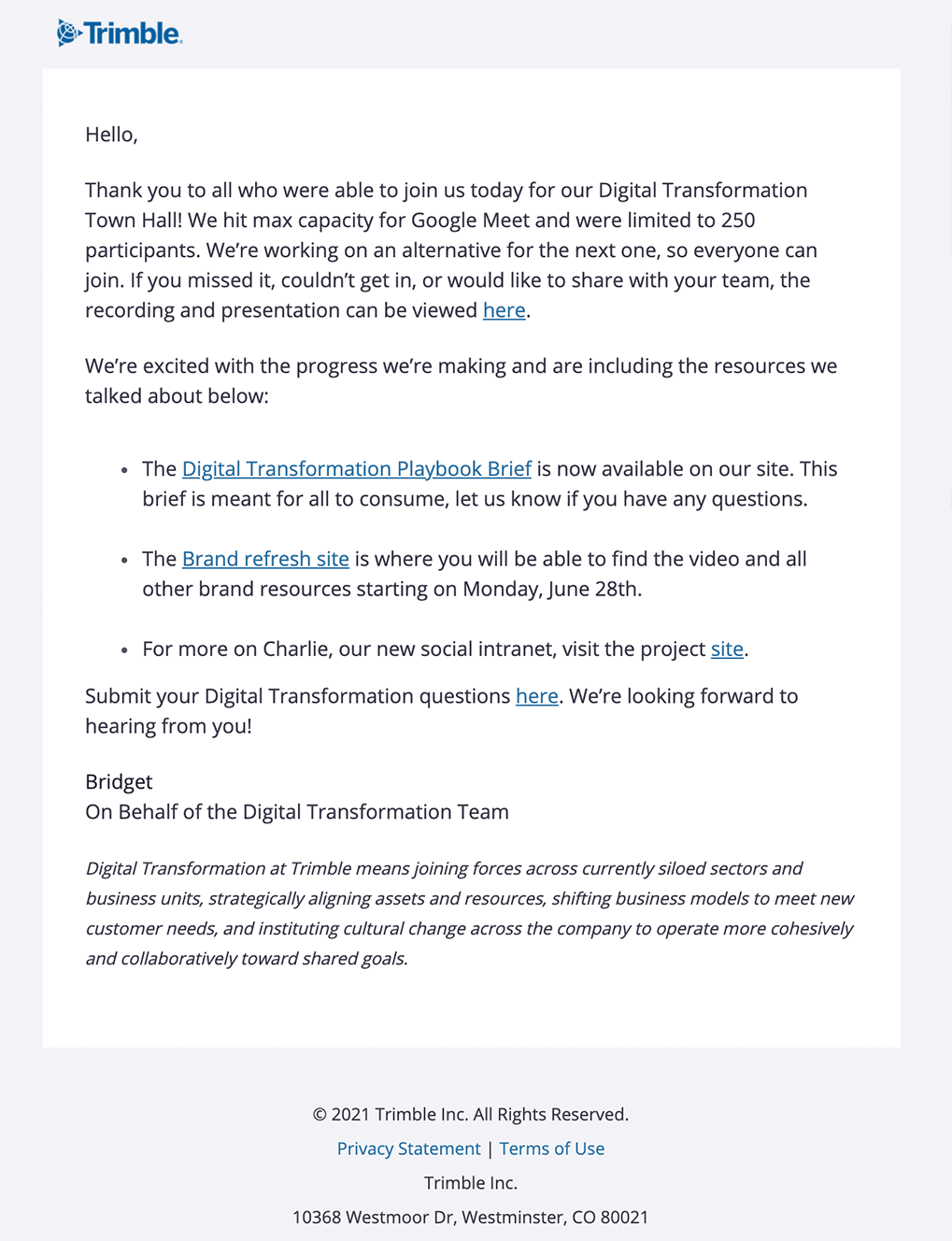Overview
Transactional email is a method of customer communication in which automated, real-time messages are sent to users through email after a specific action has been performed within an application, website, or portal. Sometimes referred to as “triggered emails” or “automated emails,” transactional emails typically contain personalized information that pertains directly to the action taken by the user, or provide system notifications.
One of the main goals of sending transactional emails is to instantaneously connect and communicate valuable information to a single user at key moments of the user’s interaction with the system. For a positive user experience, the most critical piece of sending transactional emails is 100% deliverability.

Usage
Use when
- You need to confirm a user’s action performed in the application, such as change of password, email confirmation, or change of system status
- You need the system to automatically generate a message based on the user’s actions or system status change.
- You need to communicate
- Account changes
- Account creation and activation
- E-commerce transaction receipt
- Legal notifications
- Maintenance notifications
- New user account
- Password reminders, resets and two-factor authentication
- Renewal notification
- Security and account alerts
- System/ product outage
Don’t use when
- You need to send
- Marketing or promotional message
- Release notes, tips and tricks, or onboarding information
- Abandoned cart emails
- Newsletter
- Education/ training email series
- Upsell or cross-sell emails
- Product announcements or promotions
- Webinar, trade show, or event invitations and registration confirmations
- Welcome or onboarding emails
- Trial expiration
What's changed
| Date | Version | Notes | Contributors |
|---|---|---|---|
| 08/06/2021 | 1.2.0 | Newly added element. | Z. Kulpa, J. Dong |